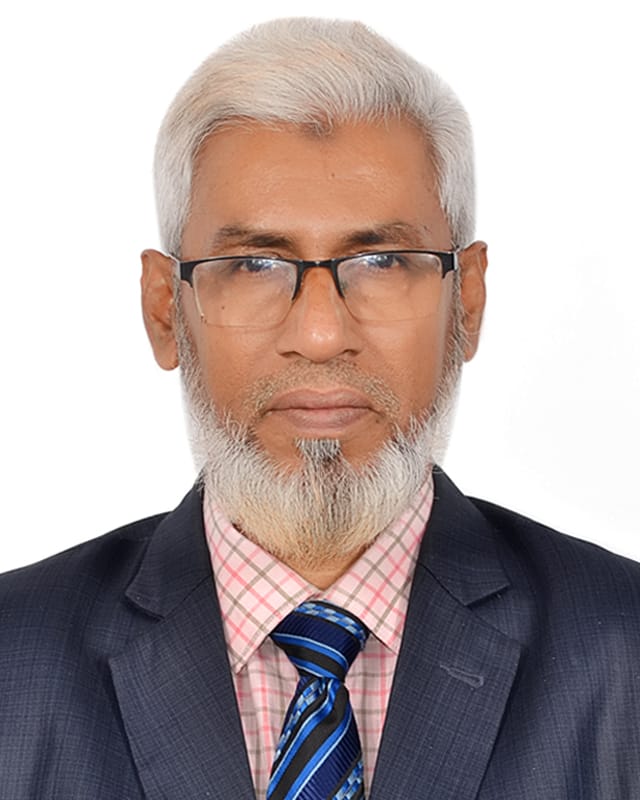
Dr. Dewan Azad Rahman: As in every year, this October 5, World Teachers’ Day is being observed with due dignity in about 191 countries, including Bangladesh. The theme announced by the United Nations for this year is—
“Recasting teaching as a collaborative profession”, which highlights the transformative potential of collaboration for teachers, schools, and education systems. The central idea of this year’s theme will further enhance collaboration in schools and within education systems. Reframing teaching naturally as a collaborative endeavor—supported by policies, practices, and environments that value mutual support, shared expertise, and collective responsibility—is essential to strengthen teaching, learning, and teachers’ professional satisfaction. For the teachers’ community in Bangladesh too, this day carries immense pride and honor.
In the aftermath of World War II, the idea of safeguarding teachers’ rights emerged through the drafting of a “Teachers’ Charter” at UNESCO’s General Conference in 1947. Article 26 of the Universal Declaration of Human Rights (1948) emphasized education as a fundamental right and essential to personality development. In continuation of these efforts, the historic “1966 UNESCO-ILO Recommendation” on the status of teachers was adopted on October 5, 1966, at an intergovernmental conference in Paris. The recommendation, organized into 13 chapters and 146 articles, recognized education as the most powerful tool for nation-building and firmly established the social, economic, and political rights, dignity, and responsibilities of teachers.
Later, in 1993, Education International—a global federation representing about 32 million teachers across 210 national organizations from 167 countries—was established with the mission to uphold and expand teachers’ rights and dignity. Following repeated appeals by this organization, UNESCO declared October 5 as World Teachers’ Day in its 26th General Conference in 1994, under the leadership of UNESCO Director-General Dr. Federico Mayor. Since then, the day has been celebrated worldwide, including in Bangladesh, with due importance.
The 1966 UNESCO-ILO document recognized teaching as a service-oriented profession and urged governments to treat teachers’ organizations as a strong force in educational advancement. It emphasized teachers’ freedom in teaching, their participation in curriculum and textbook development, and ensuring their economic and social dignity.
Regarding teachers’ salaries and benefits, the document stated:
1. Teachers must receive fair salaries to uphold their dignity.
2. Salaries should be comparable with other professions requiring equivalent qualifications, enabling teachers to maintain a decent standard of living with their families.
3. Salaries must be paid regularly according to an established pay scale.
4. Salaries should be periodically revised considering rising living costs and increased productivity.
It also gave clear guidance on job security, professional freedom, working hours, leave, and social security. Unfortunately, these recommendations have not been fully implemented in Bangladesh.
For quality education, quality teachers are essential. To attract talented individuals into the profession, competitive salaries and social recognition are vital. Past education commissions in Bangladesh—including those of 1997, 2003, and 2009—have consistently emphasized teachers’ dignity, financial benefits, and even separate pay scales. They all agreed: no matter how modern the curriculum or infrastructure is, quality education ultimately depends on teachers’ subject knowledge, training, motivation, and efficiency.
Globally, the importance of secondary education is growing as a key level in the education structure. In many developed countries, secondary education has been made compulsory. It expands and consolidates primary-level learning and supplies skilled manpower for national development. In Bangladesh too, demand for secondary education has been rising, though quality remains unsatisfactory. Textbook errors, lack of attractive learning materials, inefficient supervision, poor teacher training, and weak school organization continue to hinder progress.
Unlike primary education, which has its own separate directorate, secondary education still falls under the Directorate of Secondary and Higher Education. With over 21,000 institutions, including 1,514 colleges, effective management has become increasingly difficult. Many institutions and offices are being run by acting or deputed officials, leading to inefficiency.
Considering these challenges, every education commission since independence has recommended the establishment of a separate Directorate for Secondary Education—most notably the 2003 National Education Commission led by Prof. Moniruzzaman Miah.
The January 2025 Public Administration Reform Commission report also clearly stated:
“A separate directorate for secondary education is necessary. The quality of education is declining due to the large number of institutions under secondary education. Therefore, a separate directorate must be established.”
A policy paper prepared by the BIAM Foundation also recommended restructuring education administration by dividing the current Directorate of Secondary and Higher Education into two separate directorates. Furthermore, as per the September 4, 2024 Secretary Meeting decision, each ministry/department was instructed to prepare reform plans. Following this, the Ministry of Secondary and Higher Education submitted its reform plan on November 28, 2024, which included establishing a separate Directorate for Secondary Education by December 2025.
In line with these recommendations, the government has already approved the establishment of an independent Directorate for Secondary Education. However, some vested quarters are attempting to sabotage this positive initiative to discredit the government, which is deeply concerning and suspicious.
Therefore, effective measures must be taken to implement the separate directorate without delay in order to ensure quality secondary education in Bangladesh.
Teaching is not just a profession—it is also a vocation, even an art. Teachers must adapt to changing times by writing new textbooks, developing curricula, learning new pedagogical methods, and using modern classroom tools such as overhead projectors, audiovisual slides, colorful boards, chalk, and dusters to make learning engaging and enjoyable. On this World Teachers’ Day, our collective expectation is that teachers will continue to play their vital role in building an enlightened nation while their social dignity and honor are strengthened.
Author: Dr. Dewan Azad Rahman is a Researcher, Essayist, and President, Bangladesh Teachers’ Federation (affiliated with Education International)





